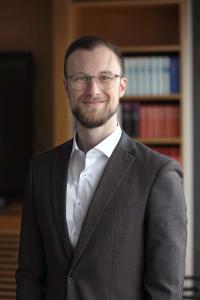The privilege of experiencing other cultures - Regional Programme Gulf States
Event Reports
Moreover, with Ibadis, Sunnis, Shiites and Sufis, Islam itself is highly diverse in the Sultanate. Yet unlike in many other places, the high degree of diversity has not led to strife and division in the Omani society. Nevertheless, hardly anyone outside the region knows about Oman’s culture of religious tolerance and openness. Since the Sultanate attracts very little international media attention, the general public tends to believe that horrific news about acts of violence and repression in the Middle East and North Africa are representative for the entire region.
At the invitation of the KAS Regional Office Gulf States, renowned German journalist and co-founder of the German Islam Conference, Ali Aslan, discussed the gap between public perception and reality during his presentation on the “Role of Media in Intercultural Dialogue” in the Cultural Club in Muscat on 12 May 2014.
Mr Aslan spoke to state, media and civil society representatives pointing out that the case of Oman reflects a larger phenomenon: even though globalisation has catalysed an increasingly dynamic and diverse supply of information about other countries and cultures, it is still the traditional media coverage which plays a decisive role in shaping our perception and thoughts. The relationship between the West and the Arab world is particularly suffering from negative and stereotypical perceptions of each other’s culture and religion - which are, to a great extent, the result of unbalanced, one-sided and generalised media coverage.
For Aslan, this is due to an overall profit-oriented media industry. The priority of media groups is first and foremost to publish news which sell and unfortunately, it is a well-known fact that bad news sell better than positive headlines. Many newspapers see heavy circulation declines and a shift toward online media. This evolution makes publishing houses even more dependent on advertising revenues which are more likely through populist ticker messages than through long, in depth and therefore particularly cost intensive reports. This explains why positive reports about the social and cultural configuration of each other’s region are mostly missing in local media coverage. Ali Aslan expressed his regret about how difficult it is for the West to sympathise with the Arab world, if the audiences are only exposed to negative coverage. Thus, he pointed out, it has been a particular privilege for him to travel to Oman and to personally experience the country’s beauty, the staggering hospitality, the religious tolerance and all the diverse social and technological achievements the Sultanate can be proud of.
Aslan further emphasised that social media could play a significant role in enhancing understanding between East and West. Facebook and Co. have proven that they are important information platforms in the Gulf region. Even though social media as well as traditional media companies are subject to state control, social media offer the possibility to keep in touch with people from other regions. This can increase empathy and boost already existing ties thanks to a positive perception which can be developed between people from different backgrounds. However, since traditional forms of reporting and social media complement each other, it is impossible to abandon the one or the other.
Following the successful start in Kuwait City, the KAS event series on the “Role of Media in Intercultural Dialogue” made its second stop in Muscat to contribute further to a sustainable development of the civil society and the intercultural dialogue between Europe and the Gulf.






